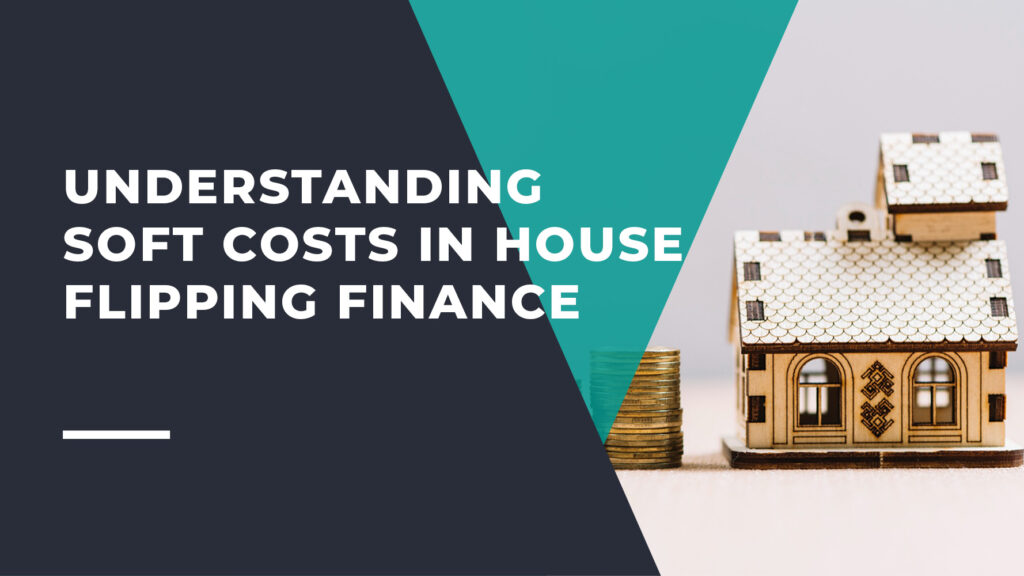House flipping, a popular real estate investment strategy, involves purchasing, renovating, and selling properties for profit.
While hard costs like property acquisition and renovation are often straightforward, soft costs can be more elusive, yet they play a critical role in the financial success of a flip.
This article delves into the concept of soft costs in house flipping finance, emphasizing their significance, planning, and management for a successful investment journey.
What are Soft Costs?
Soft costs, in the context of house flipping, refer to the non-tangible expenses incurred during the investment process.
Unlike hard costs, which are directly associated with the physical aspects of property development (like construction materials and labor), soft costs are often less apparent, yet they can substantially impact the overall budget.
Examples of soft costs include legal fees, permits, financing charges, and real estate agent commissions. These costs are sometimes overlooked in initial budgeting but can accumulate significantly, affecting the project’s profitability.
Understanding and accurately forecasting these expenses is crucial for a realistic assessment of the potential return on investment.
The Role of Soft Costs in House Flipping
In house flipping, overlooking soft costs can be a critical error. These costs play a pivotal role in the financial structure of a property flip.
For instance, financing charges, such as interest on loans used to purchase and renovate the property, can vary greatly depending on the loan terms and duration. Similarly, real estate commissions, which are typically a percentage of the sale price, can diminish the profit margins if not accounted for in the selling price.
Moreover, soft costs like permit fees and legal expenses are necessary for compliance with local regulations and legal standards. They ensure that the renovation work is legally sound and the property sale is executed correctly.
Failure to account for these costs can lead to unforeseen delays, legal issues, or additional expenses, undermining the success of the flip.
Planning for Soft Costs
Effective planning for soft costs is a cornerstone of successful house flipping. This involves meticulous research and budgeting. Begin by understanding the typical soft costs associated with properties in your target area.
Research local regulations to estimate permit costs and consult with legal and real estate professionals to gauge typical fees in your market.
Create a comprehensive budget that includes both hard and soft costs, with a contingency fund to cover unexpected expenses. This budget should be dynamic, allowing for adjustments as the project progresses.
Keeping a close eye on expenses and being prepared to adapt your strategy is essential for staying within your financial boundaries.
Managing Soft Costs Efficiently
Efficient management of soft costs involves regular monitoring and strategic decision-making. For instance, shopping around for competitive financing options can reduce interest expenses.
Working with a reliable real estate agent who understands the flipping market can also ensure that you get the best value for their services.
Adopting a proactive approach to permits and legal requirements can prevent costly delays. Engaging with local authorities early in the process and understanding the timeline for approvals can help in scheduling your project effectively.
Similarly, staying informed about legal changes or requirements in your area can save you from last-minute surprises that could derail your budget.
The Impact of Overlooking Soft Costs
Neglecting soft costs in the budgeting process can lead to several negative outcomes. The most apparent is the erosion of profit margins. When unexpected expenses crop up, they eat into the projected profits, sometimes turning a seemingly lucrative flip into a financial loss.
Also, failure to account for these costs can lead to cash flow problems. House flipping often requires careful cash management, and unexpected expenses can disrupt this balance, potentially halting the project or forcing the investor to seek additional, often costly, financing.
Strategies for Accurate Budgeting
To avoid the pitfalls of overlooking soft costs, implement a few key strategies. First, always conduct thorough due diligence before purchasing a property. This includes researching the area, understanding market trends, and getting a clear picture of all potential costs.
Use detailed budgeting tools and software designed for real estate investments. These tools can help you track both hard and soft costs, ensuring that you have a clear view of your financial position at all times.
Additionally, consider consulting with a financial advisor or an experienced real estate investor to gain insights into effective budgeting practices.
Also Read: Understanding The Fair Market Value (FVM)
Bottom Line
In conclusion, soft costs are an integral part of house flipping finance. While they may not be as visible as hard costs, their impact on the bottom line is undeniable.
When you understand, plan for, and efficiently manage these costs, house flippers can enhance their chances of success and profitability.
In the world of real estate investing, it’s not just about the visible changes you make to a property, but also about the meticulous planning and budgeting behind the scenes!


